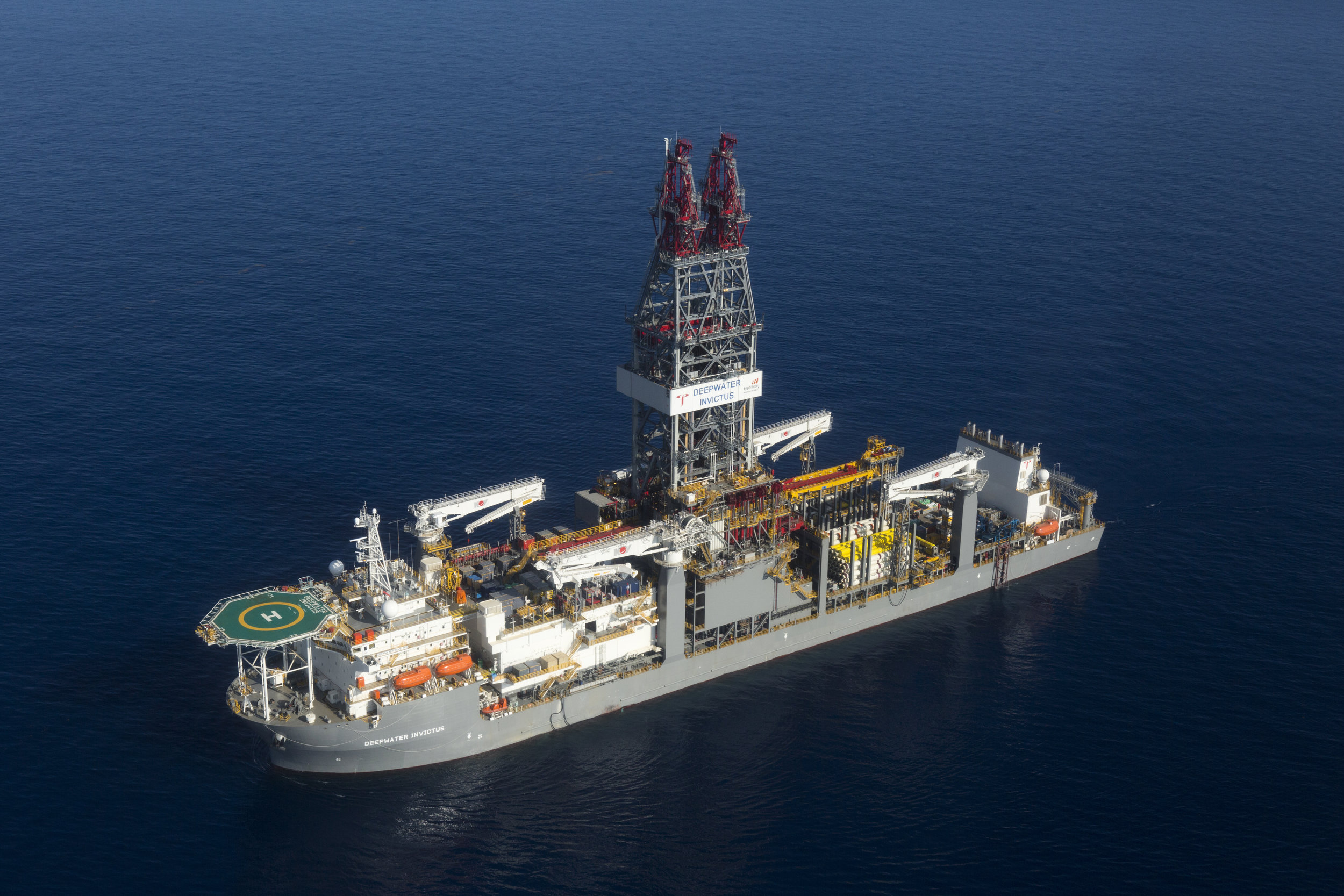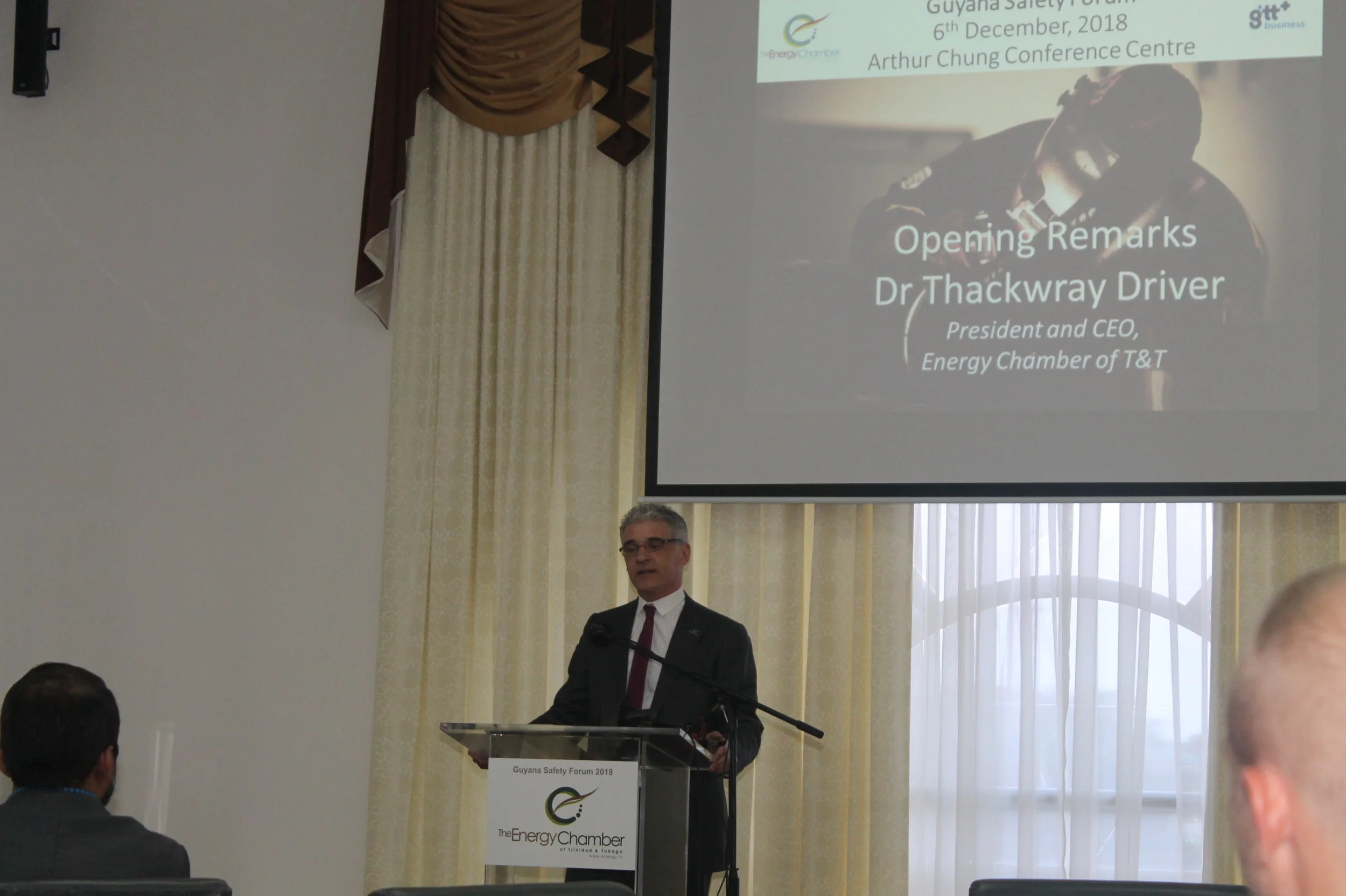Recently, it was reported that Qatar Petroleum has farmed into two blocks offshore Guyana (Orinduik & Kanuku blocks). It was stated that the Qatari oil company takes 40% of Total’s stakes in the blocks – which means that the company now owns 10% in each block.
Credit rating agency Moody’s has announced that the National Gas Company of T&T will maintain a Ba1 rating for 2018.
BPTT’s Cassia Compression development will access 1 TCF of resources, according to Regional President Claire Fitzpatrick.
BHP has indicated that Phase 3 of the deepwater drilling campaign in Trinidad and Tobago has been completed.
The Cassia Compression project will enable BPTT to access and produce low pressure gas reserves from currently-producing fields in the Greater Cassia Area, maximizing recovery from these existing resources.
Heritage Petroleum Company Limited announced that it spud (started drilling) its first oil well on Saturday June 15, 2019.
Fifty per cent of energy services companies polled indicated that the value of their business was down in the second quarter of 2019. When asked for reasons that their value of business was down, all respondents indicated that it was due to a decrease in demand for their services. Other major reasons cited were less business opportunities and loss of contracts/projects. Fifty per cent of respondents also indicated that the volume of their business was down in the second quarter of 2019. Respondents indicated that this was due to a decrease in demand for their services and less business opportunities.
Compressed natural gas (CNG) is clearly expanding by any metric. At a recently concluded CNG Symposium and Open House organised by the NGC CNG, Curtis Mohammed, President of CNG NGC, provided an update on the CNG initiative. During the update, Mohammed provided some key statistics showing the uptake for CNG from 2014 to present.
Within recent times, the Venezuelan migrant crisis has dominated the international and local media. Over the past year in particular, there have been waves of arrivals of Venezuelans into Trinidad, driven in large part by the collapse of the economy and deteriorating living conditions. Many of them have sought employment in different areas of both Trinidad and Tobago. Given Venezuela’s global reputation as a major player in the oil and gas industry, there has been concern in some quarters about Venezuelans coming to work in the energy industry, particularly the petrochemical sector and displacing locals.
In a recent survey undertaken by the Energy Chamber of Trinidad and Tobago (Energy Chamber), it was revealed that late payments for work completed continues to occur. The respondents were all energy services companies that are currently engaged in work in the sector. Over 94 per cent of respondents reported that they have significant or very significant financial impacts due to late payments. In addition, almost 70 per cent of companies have reported that the situation has been getting worse over the last three years.
With its recent 20th anniversary celebrations now in the proverbial rear-view mirror, liquefied natural gas (LNG) production company, Atlantic, is peering into the journey ahead and exploring how it will continue to navigate a very competitive global business.
On Thursday 9th May, 2019, Mr. Derek Hudson, Vice President and Country Chair of Shell Trinidad and Tobago Limited, signed the Safe to Work (STOW) Charter, demonstrating the Company’s commitment to the objectives of STOW. Also present at the signing which took place at the Energy Chamber of Trinidad and Tobago’s Executive Office were Dr. Thackwray Driver, President & CEO of the Energy Chamber of Trinidad and Tobago; Mr. Fitzroy Harewood, Chairman of the STOW Implementation Board and President of Pt. Lisas Nitrogen Limited and Mr. Eugene Okpere, Chief Operating Officer of Shell Trinidad and Tobago Limited.
The 2019 shallow water bid round was the first offer of new acreage for oil and gas exploration in Trinidad & Tobago since the downturn in global oil prices in late 2014. The bid round, that closed earlier today, saw bp and Shell, the two major existing gas producers in Trinidad & Tobago jointly bidding on three of the six blocks on offer. The joint bp and Shell bids were received for the three east coast blocks on offer, with no other bids being received for the blocks. No bids were received for the two blocks off Trinidad’s north coast and for the one block on offer in the Gulf of Paria.
In an interview with Proactive Investors UK earlier this year, Chairman of Columbus Energy Resources plc (Columbus), Leo Koot, said that this was the year for which they have been waiting.
BHP has announced that it has found hydrocarbons in its latest deepwater well in Trinidad & Tobago’s deepwater block 23(a). The Bélé-1 well is the first of a three well programme to test prospects around the Bongos discovery, made in 2018. The well is being drilled by the Deepwater Invictus rig and was spud on 2 March 2019 in 2,102 meters water depth. The total planned well depth is 3,693 meters. The 31st March BHP operational review noted that drilling was still in progress.
BP Trinidad and Tobago (BPTT) today announced first gas production from its Angelin development. The project was delivered on time and under budget.
Oil players in Trinidad & Tobago are urging changes to the government’s supplemental petroleum tax on oil production, which they say in its current form discourages investment and inhibits oil exploration.
If Guyana is to experience sustained growth leading to the development of a worldclass energy industry that benefits the local economy, it is critical that a robust safety culture is embraced now. Imperative would be the adoption of safety systems and procedures that international operators consider basic to a safe and productive operation. Adherence to such systems would also give locally owned and operated contractors greater access to work in the sector, which will enhance local content development.
The energy sector has predominantly had more males than females in senior roles. This is a global phenomenon and is not unique to Trinidad and Tobago. The International Energy Association (IEA) stated in an article in 2018 that the energy sector remains one of the least gender-diverse sectors, despite recent efforts to promote and encourage women’s participation. The IEA article alludes to inclusion of all human resources for key drivers of innovative and inclusive solutions.
The value and volume of business for energy services companies remain below normal. Fifty-nine per cent of energy services companies polled indicated that the value of their business was down in the third quarter of 2018.





















